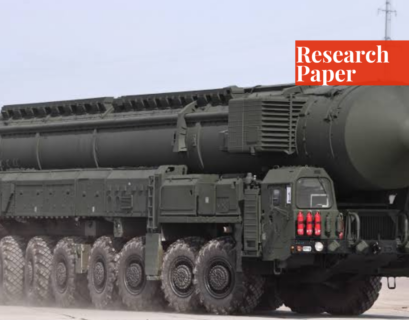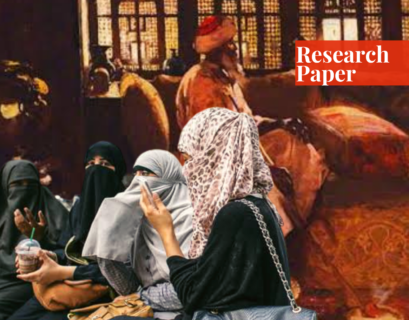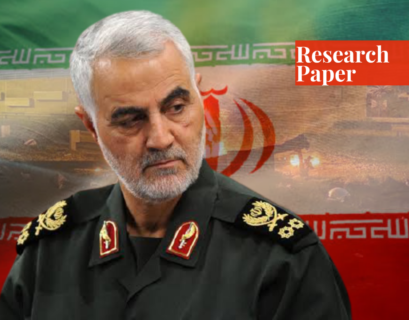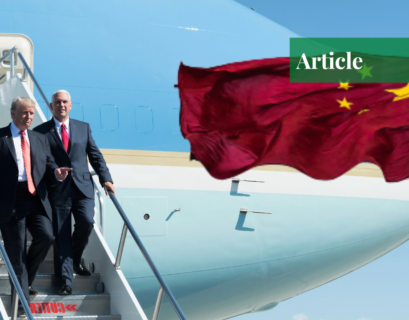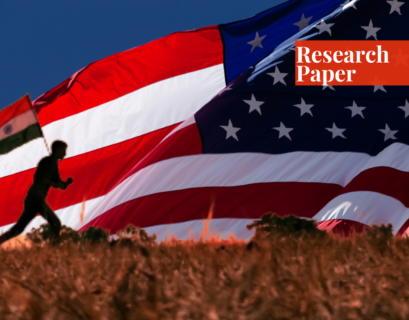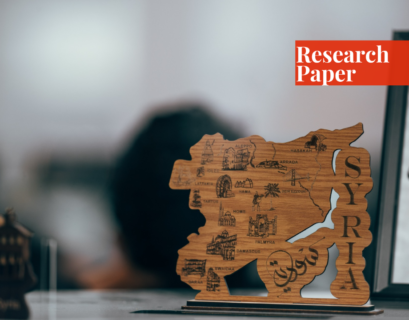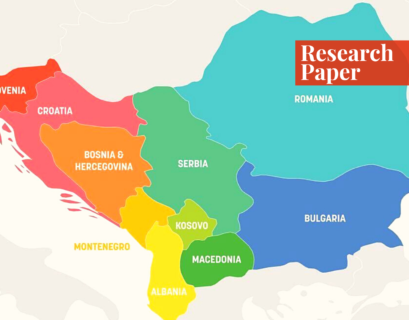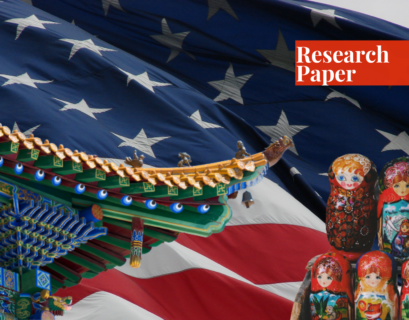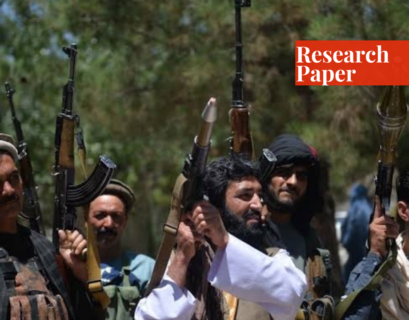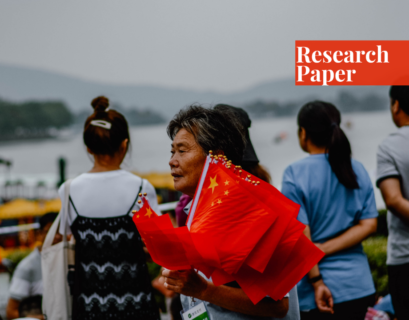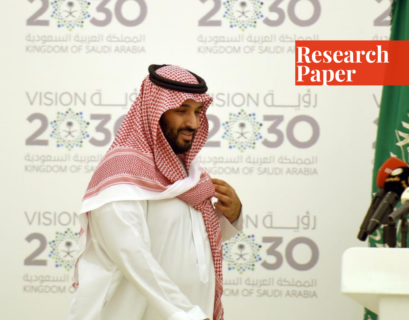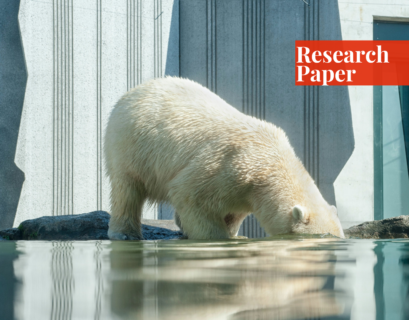The Russian S-400 Missile Deal with India: Implications for the Region
Technology has played an important role in shaping international politics. During the Cold War, both superpowers, that is, the Soviet Union and the United States were involved in the strategic rivalry and the arms race, with both trying to undermine the other’s defense capabilities.
Russia has built many surface-to-air batteries and has now developed highly advanced missile defense systems such as the S-400 missile defense system. During the 2018 summit in New Delhi, India signed a deal with Russia for 5 units of the Russian S-400 defense system which, the author believes, can negatively affect the strategic stability of South Asia.
Crusader Orientalism and the Rise of Islamophobia
The violence, discrimination, and prejudice against Muslims in the contemporary era is the continuation of the rivalry between the East and the West since the times of the Crusades. The author notes that the prejudice against Muslims can be traced back to medieval and crusader literature. She explains that crusader orientalism and the politicization of literature by the elite sowed the seeds of this biasness, by regarding Muslims as “infidels”, “black pagans”, “sub-humans”, “polluters of the Christian church”, and “aggressive”. Furthermore, the use of literature and art as a tool for manipulation has ensured the persistence of Islamophobia in the 21st century.
The US’s Assassination of General Qasem Soleimani: Causes, Impacts, and Legality
On 3rd January 2020, the United States killed top Iranian general Qasem Soleimani. The assassination of Soleimani is attributed to the historic rivalry between Iran and the US, the US agenda to lower the influence of Iran in the region, and Trump’s aggressive and dominant personality.
His assassination has a huge impact not only on the politics and relations between Iran and the US but also in the region. This research paper seeks to find the reason for the US’s assassination of Qasem Soleimani.
Challenges of Working from Home: Analyzing Engro Fertilizers in the Pandemic
The social and economic challenges introduced by COVID-19 have forced numerous small and large businesses to fold. Yet, despite these challenges, many organizations from different industries have persevered by evolving. The author, Anum Imran Mir, focuses on organizational resilience and addresses what makes a business remain afloat during a global pandemic. Through the primary data collected from the employees of Engro Fertilizers Limited (a Pakistani company operating in the agricultural sector) via questionnaires and interviews, she explains the challenges of working from home and the factors that contributed towards (and hindered) organizational resilience.
Sino-US Trade War During Trump’s Presidency
This article is aimed at explaining the fractured relationship between China and the United States during Trump’s term in office. The author explores different conflicts of this era which include the trade war and the 5G race, among others.
The future of Sino-US relations depends on how respective administrations will steer the conflict.
Thriving US and Indian Relations: Implications for Pakistan & China
Since the Cold War, the US and India have signed a series of strategic agreements, strengthening their alliance. The US-India nexus stems from the threat of a rising China in the international arena. The author, Muhammad Abubaker, notes that the US has capitalized on the Indian regional aspirations and effectively used India to advance America’s strategic goals in Asia vis-à-vis China. He explains that this strategic cooperation between the two powers has impacted China, Pakistan, and the Asian region as a whole. It has aggravated Pakistan’s security dilemma and forced it out of the American bloc. The insecurity caused by this has compelled Pakistan to strengthen its relations with China and look for an ally in Russia.
Blue-Collar Employability: Building a Strong Foundation with Technical and Vocational Education
Technical and Vocational Education and Training (TVET) is recognized as an important aspect of increasing the employability of workers. However, the author notes that the current model of TVET employed in Pakistan places more emphasis on domain-specific expertise, in an unpredictable world where transferrable skills are necessary for job security. To reform the TVET system he proposes a competency-based approach, along with the incorporation of job crafting behavior and transferrable skills, to be used in TVET in the pre-employment phase. This approach will not only increase the life-long employability of workers but also improve their job security and motivation to work.
The Contemporary Challenges Facing the Political System in Syria
The Syrian Arab Republic has a complicated stratification of ethnic groups, and strict constitutional boundaries for voting, the nomination of political parties, and elections.
Equally confusing is the distribution of power, with the presidential autonomous structure of the political system.
This system serves as an example of one of the most complex and intricate forms of democracy in the world, leading to a lack of options for any new political stakeholders to gain power.
Keeping that complexity in sight, this paper identifies and analyses the contemporary political challenges that are being faced by the political system in Syria.
Why Did the Ethnic Conflict in the Balkans Begin
The Balkan states, comprising of multiple ethnic groups, used to constitute a unified nation under the Ottoman Empire – and before that, the Byzantine Empire. Despite their ethnic and cultural diversity, the Balkans co-existed peacefully, and even had inter-communal relations. However, this changed due to the spread of nationalism by Western-influenced political elites.
By analyzing the writings of Ogier Ghislain de Busbecq, Mark Mazower, and Andrew Watchel, Hurain Sheikh, explains how this nationalism created homogeneous sentiments within a heterogeneous population. This nationalism caused them to turn against one another and demand physical boundaries. She notes that this not only resulted in mass ethnic cleansing, but also embedded hatred so deep within the hearts of the Balkans, that it has passed on from one generation to the next.
The Civil War in Congo (1960-1965): The Roles of Belgium, the USA & the USSR
In the first half of the 1960s, Congo had been involved in a devastating civil war, which not only resulted in hundreds of thousands of casualties but also laid the foundation for the continuous destruction and exploitation of the state. In her analysis of this crisis, the author, Lyba Mobeen, notes that the situation in the Democratic Republic of Congo worsened due to the involvement of Belgium – the former colonizer of Congo– and the two superpowers of that time – the US and the USSR. She explains that, during the Cold War, a proxy war had started in Congo where each of these three states fought to achieve their interests, and played specific roles to bring it under their control.
Does Economic Interdependence Lead to Peace?
Over the past few centuries, global trade and economic ties have strengthened, creating an economic interdependence between states. This interdependence, according to economic liberals, is the reason why no war at the scale of the World Wars has occurred since 1945. They argue that global peace is positively proportional to economic interdependence and that economic gains and common interests prevent states from resorting to war. However, the author, Syed Qasim Abbas, refutes this and asserts that the decreasing interest of states in armed conflict is not solely due to economic interdependence, but rather due to the collusion of many phenomena. He explains that while liberals support interdependence’s role in obtaining peace, realists, Leninists, and mercantilists prove that the pursuit of economic gains and interdependence lead to conflict – not peace.
The Rise of Russia and China: Is America in Decline?
After spending almost three decades as the world’s sole superpower, the United States of America has finally reached the point where its decline begins. The US economic, military, and political prowess is being rivaled by Russia and China. Abdul Majeed, a political researcher and former member of the Youth Parliament of Pakistan, notes that America’s share in the world economy has fallen from 40% in 1960 to 24% in 2019. Whereas, China’s share is increasing due to the massive infrastructure projects it has undertaken in Asia and Africa. Similar to its economic decline, the US has fallen behind Russia and China in technological development, and the 5G and space race. The author argues that the superpower is no longer the ideal democratic state. Not only has it been marked as a flawed democracy for the fifth consecutive year, but it has also lost its ability to militarily protect its allies, and as Russia and China develop, so do the threats to the US hegemony.
Tehreek-e-Taliban Pakistan: How Pakistan Contained the Menacing Insurgency
The paper highlights how the Tehreek-e-Taliban Pakistan (TTP), a terrorist group, lost its momentum. The paper also discusses how the political and military leadership (with public support) contributed to taking decisive action against it. While evaluating the TTP’s behavioral patterns, the author considers case studies on China and Sri Lanka, among others.
CPEC: China’s Soft Balancing Against the United States
The paper deals with China’s ‘soft balancing’ in Pakistan through the China Pakistan Economic Corridor (CPEC) and explains how such has helped limit the influence of the United States in Pakistan after 2015. The author argues that the CPEC is a step towards a more Beijing-led regional order —part of Xi’s Belt and Road Initiative (BRI) and greater ambition of extending his country’s influence — which has been working in China’s favor.
Saudi Arabia’s Vision 2030: Expectations, Myths & Realities
The social, political, and economic landscape of Saudi Arabia is being dynamically reformed under Crown Prince Mohammad bin Salman’s rule.
Providing newfound freedom to women, limiting gender taboos, and promoting education and recreation, Saudi Arabia is rapidly moving towards modernism.
In this paper, the author discusses the underlying factors driving these changes – with a focus on the aims and objectives of the ‘modern’ Vision 2030 program.
The Failure of Nations in Combating Climate Change Globally
Climate change is slowly becoming uncontrollable. Despite the extreme weather conditions around the world, the pledges, conferences, and discussions around climate change are proving to be ineffective. Collective action must be taken immediately to mitigate the intensity of this issue.
Insanity Plea in Pakistan: An Unsettled Loophole
It would come as a surprise to many that the presumption of innocence is not applicable to those that suffer from insanity. To familiarise the public with the legal dimension, the author explores the precedents that are the foundation of the insanity plea, or otherwise known as the insanity defense. The paper uderscores the importance of reforming the policies and laws related to mental illnesses.
